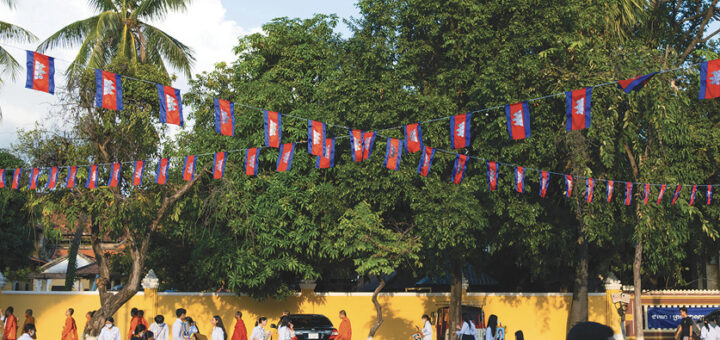Disconnection and diaspora

By Keo Bunny, Contributor
When I stepped off the plane in Cambodia, I was hoping for the wind to caress my face and the air to flow through my hair. It didn’t, instead I was met with the humid force of the South Asian atmosphere. Even inside the airport, you can feel the heat seep through the building.
It was the first time I had been back in the country in eight years and while I had lived here for over a decade when I was a kid, being back was distinctly different than how I thought it would feel.
A disquieting sense of diaspora started to pour over me. I was in my home country— why did I feel like I didn’t belong?
I didn’t want to set expectations but it was hard not to. When your home country is all your family talks about, it’s no longer just a vacation, it’s returning to where your heart is supposed to be.
But my heart was split. Canada and Cambodia might be close to one another alphabetically, but they’re 11, 265 kilometres apart— and very different culturally. Yet it feels like I had a foot in both worlds. This is the basis of where my diaspora comes from.
I was introduced to the idea of diaspora a couple of years ago in a university class called Postcolonial Literature and it changed my view of myself and the world. But how does a word that sounds like a greenwashed laundry detergent change someone’s worldview so drastically? Simple—because it affects millions of people worldwide and the likelihood of you being in or knowing someone in a diaspora is probably higher than you think.
Diaspora, according to the Canadian Encyclopedia, means members of a community that have moved or dispersed from their country of origin to another place. Think about you, your friends, family. How is that experience different from someone who has lived in Calgary their whole life?
On a personal level, diaspora for me has always been about the feeling of being stuck in the middle of two cultures. My passport says Canadian-Cambodian, but what does that actually mean?
Moving here at such a young age, I lacked the cultural identity to fully connect to one or the other.
Even though I was born with two Cambodian parents, it seemed like Cambodia sensed an outlier within its borders. I was told my mannerisms, the way I spoke and presented myself and even the way I looked were different from the average Cambodian. People who spoke Khmer (the Cambodian language) in front of me thought I wouldn’t understand.
More than anything, it was interesting to feel like a tourist in your own country. The trip was nourishing and stoked my curiosity for my own culture. I tried food I didn’t even know existed and learned things about my family and culture that staying in Canada could never answer for me. While I got to sightsee across the country, I couldn’t help but slightly mourn a lifepath lost—in another world, I would know these country roads like the back of my hand. I would live and love and die in Cambodia, never feeling the bitter bite of Canada’s cold.
On the other hand, I also wonder what it would be like to be born fully Canadian, to have that mountain air under your wings all your life. To have roots as deep as mountains anywhere would be strengthening and Alberta is no exception.
This feeling of being torn between two cultures is not uncommon for diasporic communities. Miguel Oblea was born in the Philippines and moved here in 2008 but still maintains strong family ties to his home country.
“I feel a bit closer here to Canada since I’ve spent more of my life here… [but] I still feel connected with… our language and culture. My family speaks Tagalog at home and we still celebrate some of the traditions…” he said.
The university class I took that unpacked diaspora introduced me to another idea that I really took into my heart as well. The benefit of having one foot planted in both worlds is that you see the world differently. You don’t see the world in purely a Canadian or Cambodian perspective, you see it in both. You have a unique perspective that takes into account both cultures. Essentially, while you’re not able to be fully immersed in one world, it’s pretty neat to be able to know both.




